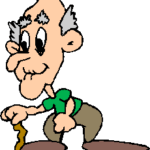 Researchers from Faculté des Sciences du Sport, in Bordeaux, France compared the response to 2 exercise programs vs usual care.
Researchers from Faculté des Sciences du Sport, in Bordeaux, France compared the response to 2 exercise programs vs usual care.
First, the details.
- 160 elderly institutionalized people were randomly assigned to a treatment group for 6 months.
- Adapted tai chi program (4 times 30 minutes/week)
- Cognition-action program (2 times 30 to 45 minutes/week) that focused primarily on an adapted guidance of patient-centered communication skills
- Usual care
- Changes in health-related quality of life based on activities of daily living and Neuropsychiatric Inventory scores after 12 months.
And, the results.
- The control group experienced a decline in activities of daily activities, which did not differ from the adapted tai chi and cognition-action groups.
- The total Neuropsychiatric Inventory score worsened significantly in the control group, while it was unchanged or improved in the treatment groups.
- Differences between the cognition-action group and control group were significant.
- Neuropsychiatric diagnosis subgroups (such as dementia and psychosis) did not change with any treatment.
The bottom line?
The authors concluded, “Adapted exercise programs can slow down the decline in health-related quality of life among heterogeneous, institutionalized elderly persons.
The results reported here are marginal from a practical point of view.
However, others have presented evidence that tai chi, and keeping active have benefits.
3/25/10 20:23 JR